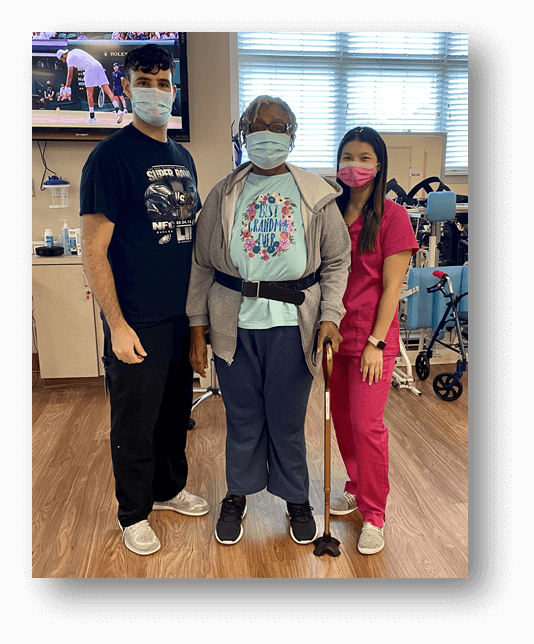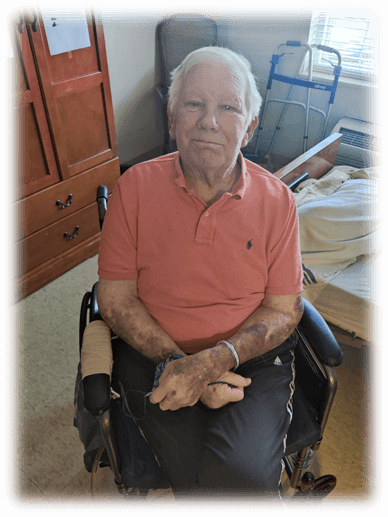Cadia Healthcare Pike Creek Wilmington | Why Care Transitions Matter
Transitions are one of the most important but least talked about aspects of care. They can make or break a patient’s experience. In this blog post, we’ll discuss the importance of transitions and how to make them as smooth as possible for your loved ones.
Transitions help ensure continuity of care.
When a patient moves from one setting to another, there is always the potential for something to get lost in translation. That’s why it’s essential to have a clear plan for each transition. This plan should include who will be responsible for communicating with the new care team, what information needs to be shared, and when it needs to be shared. A clear plan can help ensure that your loved one’s care is continuous and that nothing falls through the cracks.
For example, if your loved one is moving from the hospital to a nursing home, you’ll want to ensure that the nursing home staff has all the information they need to provide proper care. This includes a list of current medications, allergies, or other medical conditions. You should also provide the contact information for the hospital so that the nursing home staff can reach out if they have any questions. Finally, it’s always a good idea to schedule a meeting with the new care team to introduce yourselves and discuss any questions or concerns.

Transitions can be stressful for patients and families.
Transitioning from one care setting to another can be stressful for everyone involved. It’s essential to be understanding and patient during this time.
Try to be understanding and patient as your loved one transitions from one care setting to another. This can be a difficult and stressful time for them, so good communication is critical. Make sure that you and your care team are in close contact to ensure everyone is on the same page. This way, you can help make the transition as smooth as possible for your loved one.
Transitions can be opportunities for errors.
With any transition, there is always the potential for something to go wrong. That’s why it’s important to double-check the details before your loved one is discharged from the hospital or moves to a new care facility. Make sure you understand the discharge instructions and have a list of all the medications your loved one is taking. You should also have the contact information for all the new care team members.
If your loved one is moving to a new care facility, make sure you visit the facility ahead of time. This will help you feel for the place and meet some staff. It’s also a good idea to ask about the facility’s policies on visitors and communication.
Finally, don’t hesitate to contact your loved one’s old care team if you have any questions or concerns. They can provide valuable insights and support during this transition period.
Transitions can be overwhelming for patients and families.
There is much information to process when transitioning from one care setting to another. It’s essential to take your time and ask questions if you don’t understand something. Be sure to get all the information in writing so you can refer back to it later.
Some important things to keep in mind when transitioning to a new care setting:
- Make sure you understand all of the policies and procedures of the unique care setting.
- Be sure to get contact information for all the staff members you will be working with.
- Please introduce yourself to the other residents and get to know them.
- Get familiar with your new surroundings and find out where everything is located.
- Most importantly, take your time and adjust at your own pace. Transitioning to a new care setting can be overwhelming, but it doesn’t have to be. With some preparation and patience, you’ll be settled in no time.
Transitions can be disruptive to patients' routines.
Patients often have established routines that help them feel comfortable and in control. When these routines are disrupted, it can be unsettling for patients. To help smooth the transition, try to maintain as much of the patient’s routine as possible. If they usually take a walk in the afternoon, try to schedule that activity around the same time each day.
In addition, try to provide as much information as possible to the patient about what to expect during their stay. This can help reduce anxiety and stress. Finally, be sure to listen to the patient’s concerns and address them as best you can.
By following these tips, you can help make the transition into the hospital less stressful for your patients.
Transitions can be disruptive to a patient's sleep.
Sleep is essential for both physical and mental health. When patients transition to a new care setting, their sleep can often be disrupted. This disruption can cause anxiety and make it difficult for patients to adjust to their new surroundings. To help promote healthy sleep during a transition, establish a regular bedtime routine and stick to it as much as possible. Avoid caffeine and electronics in the evening, be patient, and create a calm environment in the bedroom.
Transitions can be difficult for everyone, but by following some simple tips, you can help your patients get the sleep they need to adjust successfully. Creating a regular bedtime routine and sticking to it will go a long way in promoting healthy sleep during any transition. If you have any questions or concerns, talk to your healthcare provider.

Transitions can be emotionally challenging for patients and families.
Transitions can be emotionally challenging, especially if the move is unexpected or the patient is leaving familiar surroundings. It is essential to discuss any fears or concerns with your loved one and their care team. Be sure to express your support and let the patient know you’ll be there for them during this time. The physical act of moving can also be challenging, especially if the patient cannot do it themselves. In this case, it’s essential to enlist the help of friends, family, or professional movers. Helping the patient pack their belongings and getting everything ready for the move will make the transition smoother and less stressful.
Once the move is complete, take some time to settle in and get familiar with the new surroundings. This may include exploring the new neighborhood, finding local amenities, and meeting new people. If possible, try to create a sense of normalcy by keeping up with old routines and traditions. The transition can be a positive experience for everyone involved with a bit of time and effort.
Conclusion:
Transitions are a normal part of the healthcare journey but can be challenging. By being prepared and working with your loved one and their care team, you can help make the transition as smooth as possible.
Looking for a top-rated rehabilitation center in Wilmington? Look no further than Cadia Healthcare Pike Creek. Our highly skilled and experienced staff provide exceptional care to help our patients reach their maximum potential. We offer a wide range of physical, occupational, speech, and more services. Contact us today to learn more about how we can help you or your loved one achieve optimal health and wellness.
